Parks Australia pleads guilty to sacred site breach at Gunlom Falls
Kakadu custodians share their grief over a sacred site breach which has closed a beloved waterfall for five years. ‘I want that spirit of my ancestors to be happy’.
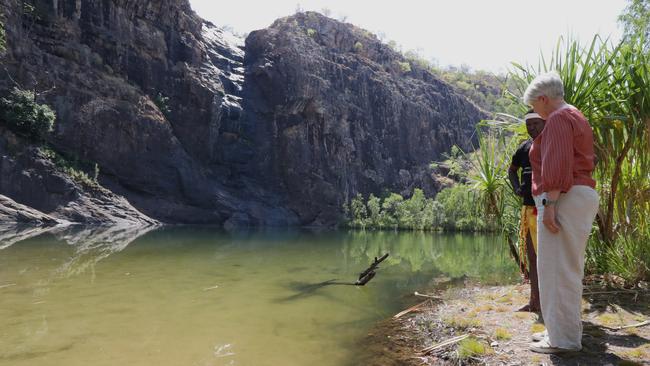
Indigenous Affairs
Don't miss out on the headlines from Indigenous Affairs. Followed categories will be added to My News.
A clash over a Territory sacred site which went all the way to the Australian High Court has returned to its home in the heart of Kakadu.
It has taken the Jawoyn people five years of court hearings and heartache to hear a single word: “Guilty”.
On Tuesday Parks Australia director Ricky Archer entered the Commonwealth’s guilty plea to breaching NT sacred site laws, admitting to illegally working on a sacred site without an authority certificate.
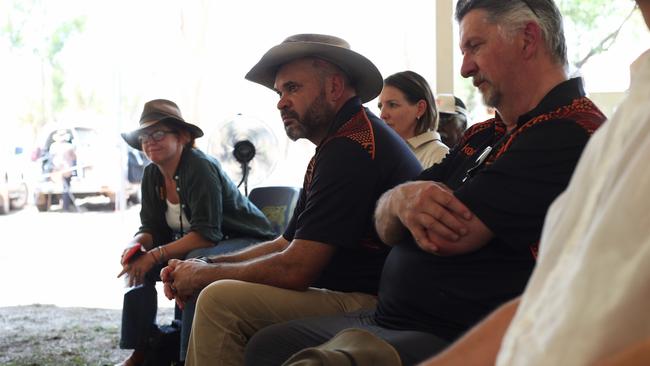
More than 100 people attended the unusual on Country local court hearing – the first time Gunlom Falls has been opened since 2019 – to hear how the Commonwealth built a walkway that exposed a protected men’s site to the public.
Bolmo clan senior man Joseph Markham said the decision had destroyed the trust between Parks Australia and the Jawoyn people, who had supported building the accessible walkway up to the top pools of Gunlom Falls.
Mr Markham told NT Local Court Chief Judge Elizabeth Morris he provided clear advice to Parks Australia in his role as a Junggayi, a sacred site “policeman”.
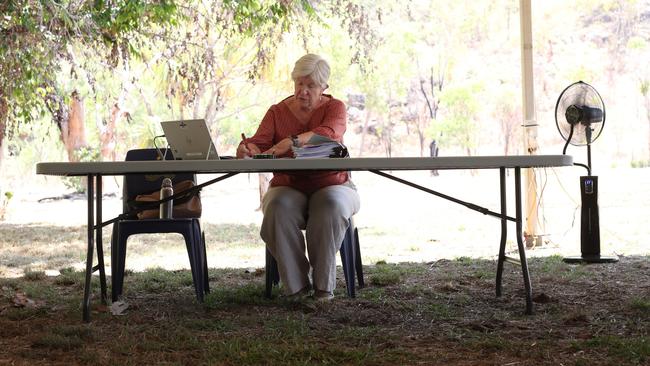
Yet after the new walkway opened in 2019, the Jawoyn discovered that their advice had been ignored exposing the sacred men’s site to everyone.
While unable to share too many details about the men’s site, Mr Markham said it featured rock art made by their ancestors and “the spirits themselves”.
He told Ms Morris that if women went to the men’s site they could “get sick or go crazy”, or suffer miscarriages.
Mr Markham explained Ms Morris that Gunlom Falls as a whole was a sacred area, shaped by the creation spirit Bula as he travelled across the landscape during the Buwurr (Dreamtime).
“As he travelled through this area he left his essence behind in certain places,” he said.
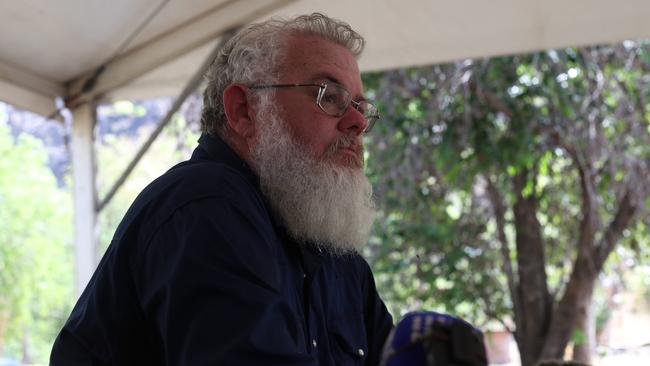
Mr Markham said the pristine waterfall flows near where Bula now sleeps, issuing a stern warning against waking the spirit.
“The rocks and the trees in sickness country cannot be disturbed, otherwise you can wake up Bula who will cause calamity to occur and the end of the world.”
The Junggayi said for five years he had carried that shame, stress, anger and sadness about the exposure of the men’s site.
Traditional owner and Wurrkbarbar clan senior man Joshua Hunter said the “violation” of the sacred site was a betrayal of their consultation with Parks Australia.
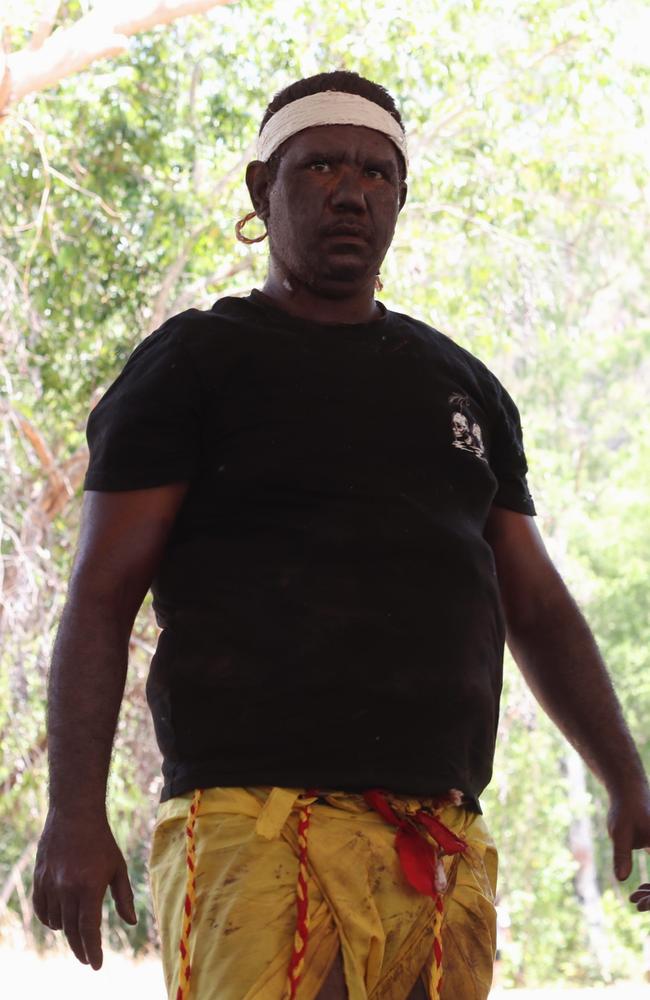
“It was worse than if we had never been asked at all,” Mr Hunter said.
Despite acknowledging they worked on the sacred site without permission, the Commonwealth previously argued it was “immune” from the NT’s Sacred Site Act all the way to the High Court.
However, in a landmark appeal decision in May 2024 the High Court found in favour of the Jawoyn people and sending the case back to the Territory Local Court.
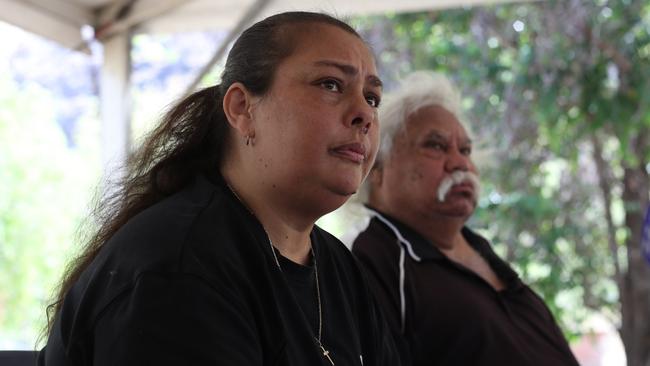
For Wurrkbarbar and Matjba clan women Bernadette Calma, this was about more than a five-year battle over a walkway, with the case speaking to a deeper issue for Aboriginal people.
“We need to be able to trust Balanda (non-Indigenous) law,” Ms Calma said.
“If we don’t send a message to other Traditional Owners, that they can put a stop to things like this, then it will happen again.”
Aboriginal Areas Protection Authority barrister Lachlan Spargo-Peattie called for the maximum fine of $314,000, but Parks Australia argued that compensation payments to Jawoyn should moderate the final penalty.
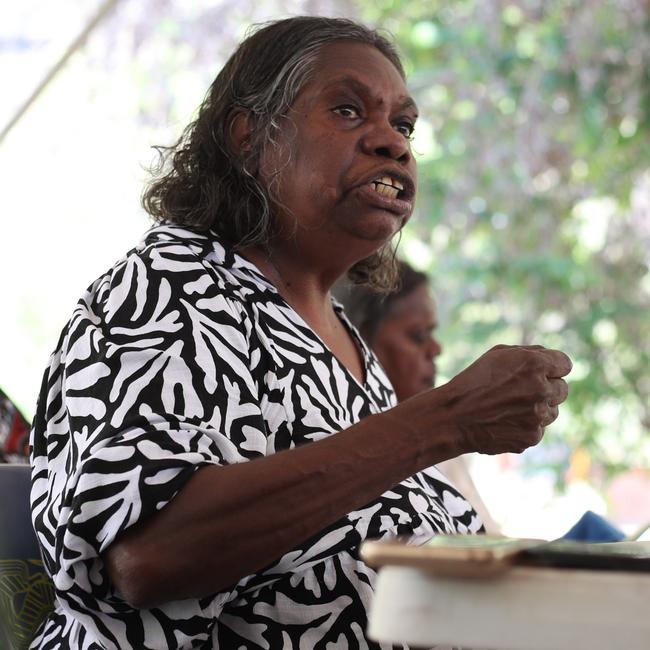
Bolmo clan and Traditional Owner Rachel Willika Kendino said she hoped the final hearing would be a moment of healing, restoring the feeling of Yilk-magku.
“It means I want my spirit to be happy, I want that spirit of my ancestors to be happy, I want the spirit of my next generation to be happy so they can continue on,” she said.





